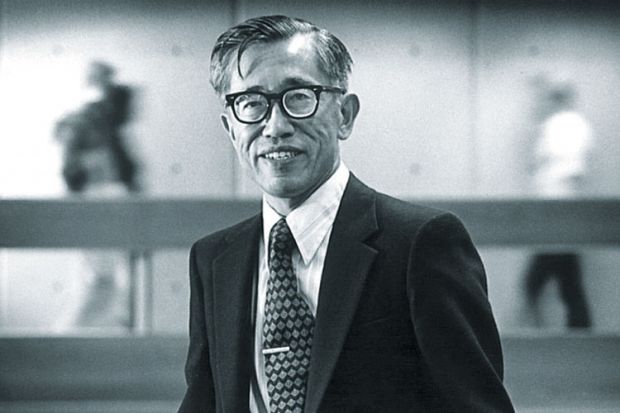Ernest Kuh was born on 2 October 1928 in Beijing, China, but political instability led to his family moving frequently, eventually to Shanghai in 1937. Ten years later, he took a slow boat to the US in order to continue his studies.
He advanced with them with great rapidity, securing a BS in electrical engineering from the University of Michigan in 1949, a master’s from the Massachusetts Institute of Technology in 1950 and then a PhD in network theory from Stanford University in 1952. His doctoral thesis, most unusually, was published in the Journal of Applied Physics.
Upon completing his studies, Professor Kuh worked for Bell Laboratories in Murray Hill, New Jersey. It was the only job he had applied for, and he would be only the second Chinese employee of the firm. He specialised in telephone infrastructure, and some of his work was incorporated into the first transatlantic cable, laid in 1956.
In the same year, however, Professor Kuh returned to the academy at the University of California, Berkeley, where he would become a pioneer in bioengineering and in the application of digital computing methods to circuit design. He was to remain at Berkeley for the rest of his working life, retiring in 1992 as William S. Floyd Jr. distinguished professor.
He served as chair of the department of electrical engineering and computer sciences from 1968 to 1972 and then as dean of the College of Engineering from 1973 to 1980, when he decided to step down from the post and concentrate on the emerging field of electronic design automation (EDA). This work laid some of the foundations for the vital new fields of computer-aided design and manufacturing.
“Professor Kuh has been one of the key founding fathers of the EDA industry,” said his former student Chi-Ping Hsu, now senior vice-president and chief strategy officer of Cadence Design Systems. “Many of the early EDA companies were formed by his students and fellow researchers.”
In 1973, Professor Kuh had a chance to reconnect with his Chinese roots as part of a month-long trip to mainland China by a delegation of Berkeley professors. He was to go back many more times, develop a number of collaborative projects and receive six honorary professorships as well as honorary doctorates from the Hong Kong University of Science and Technology and the National Chiao Tung University in Taiwan.
Professor Kuh died on 27 June and is survived by his wife Bettine, two sons and three grandsons.




